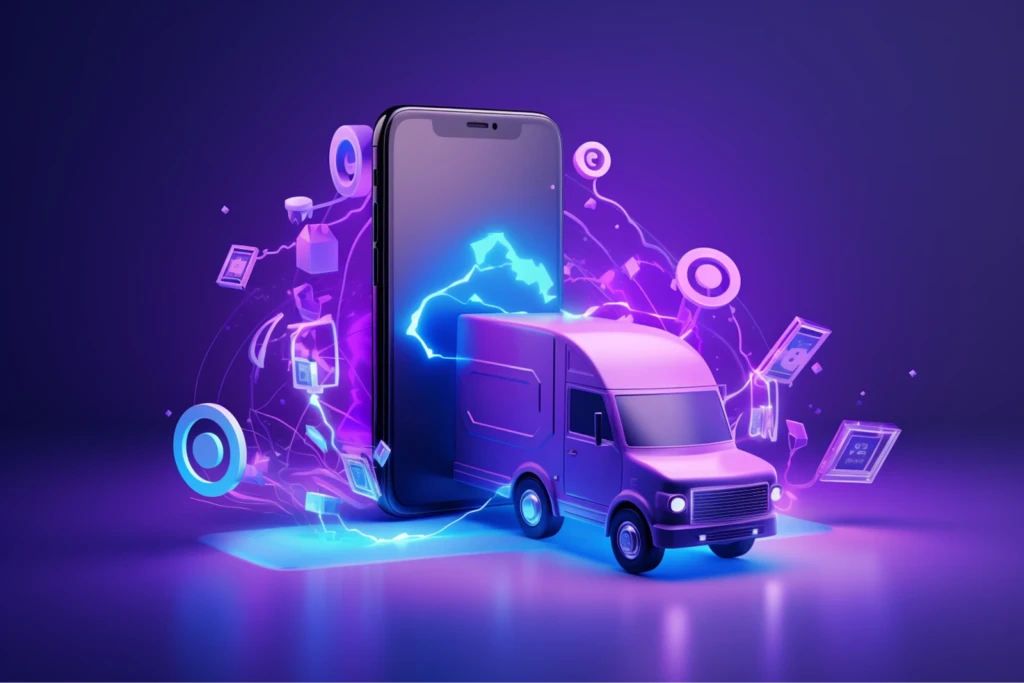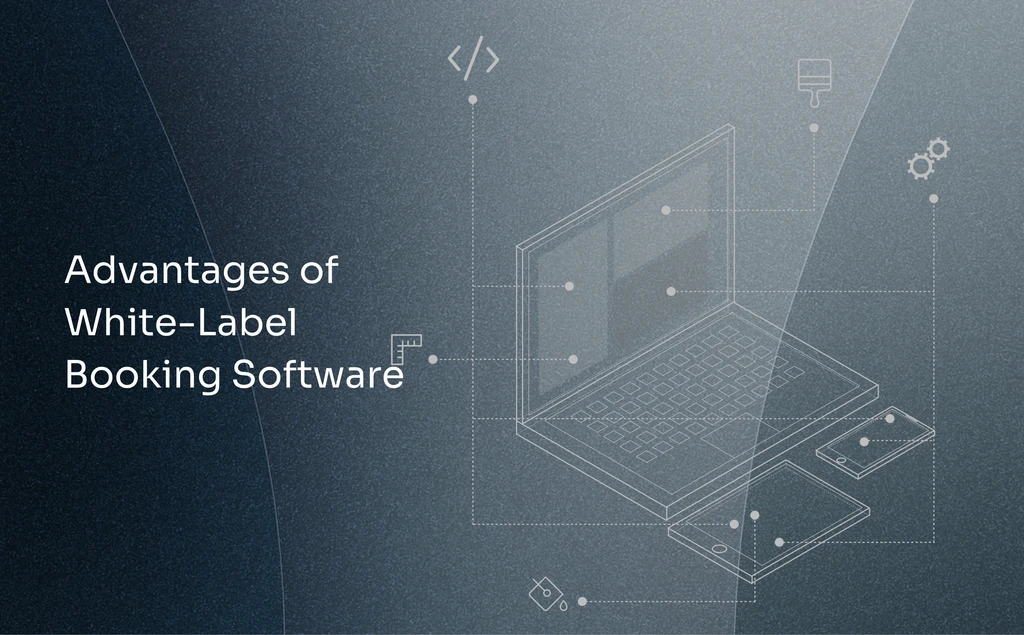Back to all Articles
Karol Andruszków
Karol is a serial entrepreneur who has successfully founded 4 startup companies. With over 11 years of experience in Banking, Financial, IT and eCommerce sector, Karol has provided expert advice to more than 500 companies across 15 countries, including Poland, the USA, the UK, and Portugal.
The Gig Economy: Transforming Delivery Excellence
Updated:
Thu, Apr 3
Reading time: 10 minutes

The gig economy is revolutionizing the traditional workforce, introducing flexibility and innovation across diverse industries.
Pioneering gig economy platforms such as Uber and TaskRabbit exemplify the model's triumph, illustrating its efficiency in sectors ranging from transportation and accommodation to professional services.
Curious about the potential impact of the gig economy on your business? Or perhaps, you're questioning its suitability for your specific industry?
Read this article and explore the gig economy model.
Pioneering gig economy platforms such as Uber and TaskRabbit exemplify the model's triumph, illustrating its efficiency in sectors ranging from transportation and accommodation to professional services.
Curious about the potential impact of the gig economy on your business? Or perhaps, you're questioning its suitability for your specific industry?
Read this article and explore the gig economy model.
Article Sneak Peek:
The gig economy has transformed key sectors, including transportation, accommodation, professional services, and delivery.
The gig economy emerges as a beacon of innovation for service and delivery-based companies following success of gig economy platforms like TaskRabbit, Teamo, Uber, Airbnb.
545 online gig economy platforms are operating in 186 countries.
Companies gain access to a global talent pool for 24/7 operations.
The gig economy allows businesses to adjust their workforce in real time.
What Is the Gig Economy?
The gig economy consists of temporary, flexible jobs where businesses engage independent workers for short-term tasks. It emphasizes adaptability for companies and autonomy for workers, offering opportunities to adjust workforce needs dynamically.
By 2028, the U.S. gig workforce is projected to grow to 90.1 million freelancers, a clear indication of its long-term impact on the global economy. This model thrives on flexibility and innovation, transforming industries by connecting businesses with skilled professionals across the globe.
Key platforms like Uber, TaskRabbit, and Airbnb demonstrate how gig-based solutions can disrupt traditional business operations, creating a more efficient and responsive workforce.
By 2028, the U.S. gig workforce is projected to grow to 90.1 million freelancers, a clear indication of its long-term impact on the global economy. This model thrives on flexibility and innovation, transforming industries by connecting businesses with skilled professionals across the globe.
Key platforms like Uber, TaskRabbit, and Airbnb demonstrate how gig-based solutions can disrupt traditional business operations, creating a more efficient and responsive workforce.
.webp?43535.39999997616)
Key Sectors Revolutionized by the Gig Economy
The gig economy’s reach spans diverse industries, each benefiting from its adaptability:
Transportation
Platforms like Uber and Lyft empower drivers to earn income on their schedules, providing users with accessible, efficient mobility solutions.
Accomodation
Airbnb enables property owners to rent their spaces, offering travelers unique, affordable lodging options and reshaping the hospitality industry.
Professional Services
Freelance marketplaces like Upwork and Fiverr connect businesses with independent professionals in fields like programming, design, and digital marketing.
Delivery Services
Apps such as DoorDash and Postmates offer couriers flexible work while ensuring fast and convenient deliveries for customers.
Gig Economy - How It All Started?
The gig economy originated from traditional freelancing, where workers relied on personal connections and local job boards. Today, online platforms have expanded its reach, creating a global phenomenon.
The pandemic accelerated this growth, with 23 million new gig workers joining the U.S. market in 2020. Of these, 75% cited freelancing as a way to stabilize finances during economic uncertainty.
Post-pandemic, the gig economy continues to thrive. Businesses value its flexibility, while individuals embrace the freedom to design careers on their terms. Companies increasingly integrate gig workers into core operations, leveraging their skills and agility to meet evolving demands.
The pandemic accelerated this growth, with 23 million new gig workers joining the U.S. market in 2020. Of these, 75% cited freelancing as a way to stabilize finances during economic uncertainty.
Post-pandemic, the gig economy continues to thrive. Businesses value its flexibility, while individuals embrace the freedom to design careers on their terms. Companies increasingly integrate gig workers into core operations, leveraging their skills and agility to meet evolving demands.
Dynamic Gig Economy Growth
- 545 gig economy platforms operate across 186 countries, linking businesses with a global talent pool.
- The U.S. alone anticipates 90.1 million freelancers by 2028.
- The digital commerce market, projected to surpass $18.97 trillion by 2028, creates an urgent need for businesses to embrace agile workforce models.
These numbers highlight how the gig economy is reshaping traditional employment models, offering new ways to earn, innovate, and grow.
Can Gig Economy Model Address Emerging Challenges?
The service and delivery sectors face significant challenges in adapting to rapid digital transformation:
- Growing Shift to Online Retail: Digital sales are projected to reach $18.97 trillion by 2028.
- Evolving Customer Expectations: Consumers spend an average of €342 per month online, expecting seamless experiences across channels.
- Technology Gaps: 95% of C-suite executives recognize a disconnect between what their technology delivers and what customers demand.
So, what's the solution? How can businesses stay ahead in this fast-paced digital landscape?
To stay competitive, businesses must:
1. Invest in scalable digital platforms to align with market needs.
2. Embrace agile workforce models to adapt to changing demands.
3. Partner with technology providers for customized solutions.
What Opportunities Does the Gig Economy Offer for Businesses?
Flexibility and Scalability at Your Fingertips
Dynamic workforce scaling allows businesses to align labor needs with demand in real-time. This ensures optimal staffing during peak periods without carrying excess costs during slower times.
Exploring New Markets
The gig economy allows businesses to test new markets or services without committing to long-term staffing. This agility helps companies pivot quickly in response to market feedback.
Accessing a Global Talent Pool
Gig platforms connect businesses with skilled professionals worldwide, enabling 24/7 operations. This not only boosts productivity but also facilitates innovation.
Cost Efficiency
The pay-for-performance model reduces overhead costs, replacing traditional expenses with scalable, output-driven spending.
Empowering Workers
For workers, the gig economy offers flexibility, autonomy, and opportunities to diversify income. It also creates new avenues for women and youth to enter the workforce, breaking traditional employment barriers.
Success Stories of Gig Economy Platforms
Case Study 1: TaskRabbit
TaskRabbit is a gig economy platform that connects skilled 'Taskers' with individuals needing assistance with a wide array of tasks—from standard handyman jobs, cleaning, and moving, to more unique requests.
TaskRabbit's journey is marked by continuous expansion and recognition. Its operational footprint now spans thousands of cities across nine countries, including Canada, France, Germany, Italy, Monaco, Portugal, Spain, the United Kingdom, and the United States.
TaskRabbit's innovative business model has attracted significant investment, raising $38 million before its acquisition by IKEA, making TaskRabbit services available in over 200 IKEA stores worldwide. The platform's growth is further evidenced by its community of 2 million taskers and 9 million completed jobs since 2008.
Ania Smith, TaskRabbit CEO envisions a future where gig work continues to flourish, driven by the autonomy it offers workers and the efficiency it brings to clients. The platform's model, which emphasizes fair compensation—evidenced by an average hourly rate significantly above minimum wage—sets a standard for how gig economy platforms can support their workers financially while providing flexibility and choice.
The gig economy has become a defining feature of our modern workforce. This new model is changing how we think about work.
Says Ania Smith, CEO of TaskRabbit
Case Study 2: Teamo (Project by Ulan Software)
Developed and launched by Ulan Software, Teamo is more than just an app—it's a solution that embodies the essence of the gig economy by connecting drivers and helpers with customers who need reliable, swift delivery services.
At its core, Teamo leverages the gig economy by integrating drivers and helpers into its operational model. This approach not only provides flexible work opportunities for individuals but also ensures that customers receive prompt and reliable service.
By embracing the gig economy model, Teamo offers a scalable workforce that can adapt to varying demands, illustrating the mutual benefits for workers and consumers alike. With a remarkable 98% satisfaction rate among app users, including customers, drivers, and helpers, Teamo has established itself as a preferred choice in its operational cities: Tampa, FL, Orlando, FL, Detroit, MI, Minneapolis, MN, Charlotte, NC, and Atlanta, GA. This high level of user satisfaction reflects the app's reliability, user-friendly interface, and the overall quality of service provided.
Teamo's success story in the USA sets the stage for its ambitious global rollout plans. The vision extends beyond the current markets, aiming to make Teamo a worldwide solution for delivery and logistics challenges. This global perspective underlines the scalability of the gig economy model and Teamo's potential to redefine service standards across borders. Dive deeper into the full story of development Teamo - gig economy platform with detailed case study.
Learn more about this project: Delivery Service App for IKEA and Taskrabbit
Case Study 3: Uber
Uber's platform connects drivers with riders through a seamless, user-friendly mobile app, embodying the essence of the gig economy: flexibility, autonomy, and opportunity.
This model offers drivers the freedom to work as little or as much as they want, providing a flexible source of income that can be adjusted according to individual needs and schedules. For consumers, Uber has introduced unparalleled convenience and efficiency to urban transport, often at a lower cost than traditional taxi services.
Uber's approach to service delivery emphasizes worker flexibility, allowing individuals to become micro-entrepreneurs who manage their earnings, work hours, and even the areas they serve. This level of autonomy is a significant departure from conventional employment structures, appealing to a diverse workforce seeking balance and control over their professional lives.
The fourth quarter of 2023 marked a significant milestone for Uber, showcasing robust financial results that underscore its ongoing influence and success in the gig economy. Trips and monthly active platform consumers experienced notable growth, increasing 24% and 15% year-over-year, respectively.
Additionally, Uber reported a substantial net income of $1.4 billion and income from operations at $652 million. With Uber powering an average of nearly 26 million daily trips in 2023, these figures highlight the company's resilience, adaptability, and its ability to continuously innovate and expand its service offerings in a competitive market.
If you're interested to learn more about on-demand delivery apps read: Key Features for Medical Courier App Development
Case Study 4: Airbnb
At its heart, Airbnb's business model is about sharing: hosts share their homes, and in return, they gain financial rewards and the opportunity to meet people from all walks of life. This model exemplifies the gig economy by offering flexibility and autonomy to hosts, who can list their properties whenever they choose, setting their prices and house rules. For travelers, Airbnb provides access to diverse and often more affordable accommodation options than hotels, from city apartments to secluded cabins.
Airbnb's use of the gig economy has profoundly impacted how people earn and travel. Hosts utilize their existing assets—be it a spare room or a vacation home—to generate additional income, while travelers enjoy authentic experiences that traditional lodging options might not offer.
In Q3 2023, Airbnb soared with over 113 million Nights and Experiences booked, up by 14% from last year, signaling a robust comeback. The platform not only celebrated a whopping $4.4 billion net income but also enriched its hosts by over $19 billion, showcasing the immense earning power it brings to individuals across the globe and success in utilizing gig economy power for their business model.
Read More: What Types of Technology Helped the Gig Economy Grow?
The Next Step Towards the Gig Economy
The gig economy is more than a trend but a transformative model reshaping industries and workforce management. It offers unmatched flexibility, scalability, and cost efficiency for service and delivery companies.
Partner with Ulan Software to open possibilities of the gig economy for your business. With innovative IT solutions tailored to gig platforms, we help businesses scale operations, adapt to market demands, and deliver exceptional customer experiences. Contact us today to explore how we can transform your operations and drive success in a dynamic digital economy.
Partner with Ulan Software to open possibilities of the gig economy for your business. With innovative IT solutions tailored to gig platforms, we help businesses scale operations, adapt to market demands, and deliver exceptional customer experiences. Contact us today to explore how we can transform your operations and drive success in a dynamic digital economy.
Karol Andruszków
Karol is a serial entrepreneur who has successfully founded 4 startup companies. With over 11 years of experience in Banking, Financial, IT and eCommerce sector, Karol has provided expert advice to more than 500 companies across 15 countries, including Poland, the USA, the UK, and Portugal.
Table of Contents:
Article Sneak Peek
What Is the Gig Economy?
Key Sectors Revolutionized by the Gig Economy
Gig Economy - How It All Started?
Dynamic Gig Economy Growth
Can Gig Economy Model Address Emerging Challenges?
What Opportunities Does the Gig Economy Offer for Businesses?
Success Stories of Gig Economy Platforms
The Next Step Towards the Gig Economy
Recommended Articles
Fri, Oct 3
7 Advantages of White‑Label Booking Software Solutions
Discover 7 key advantages of white-label booking software: faster launch, lower costs, scalability, brand control, and better customer loyalty.
Thu, Sep 25
The ROI of the Online Booking System
See how an online booking system delivers ROI by saving costs, increasing revenue, and improving customer experience.
Mon, Sep 22
Online Booking System Implementation: What you need to know
Discover key challenges and best practices for online booking system implementation. Learn how to avoid pitfalls and ensure smooth, scalable adoption.


